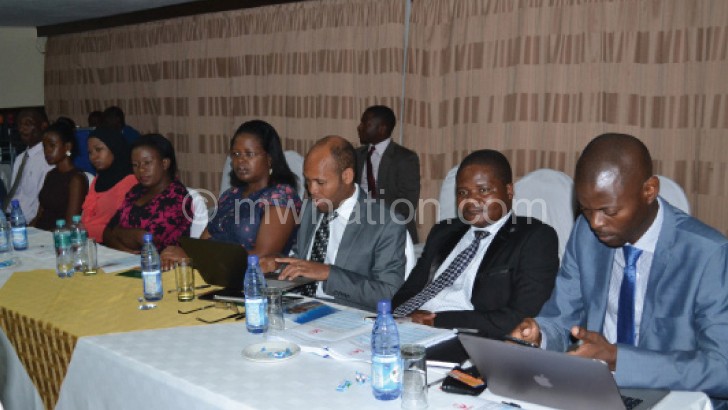High costs prohibit cellphone usage—Survey
Many Malawians have access to mobile phones and other telecommunication facilities, but usage remains low because of the high cost of services by operators in Malawi, according to a survey.
The survey on the use of information and communications technologies (ICT) commissioned by Malawi Communications Regulatory Authority (Macra) and undertaken by National Statistical Office (NAO) is the first national survey on access and usage of ICT services in the country.

Hitherto, Malawi was not able to provide ICT data to international organisations and potential investors due to lack of credible and reliable data.
Speaking at the dissemination of the survey results in Lilongwe on Monday, Macra deputy director general Francis Bisika said he hoped the findings would be a wake-up call to all players in the communication sector and motivate them to make ICT a catalyst for economic growth.
He said: “The main objective of the survey was to establish a reliable data on the access to and usage of ICTs as a baseline and comparable statistics with other countries.”
NSO commissioner of statistics Mercy Kanyuka said while the Population and Housing Census had previously looked into access to a mobile phone and radios, there has been no detailed statistical data until now.
The survey had a sample of 12 000 across the country’s 28 districts and was conducted between November 2014 and January 2015 looking into household and individual usage and access to mobile and fixed phones, television and radio, pay TV as well as post office box.
The survey has found that while 85.1 percent of Malawians own a mobile phone, only 30 percent are capable of browsing the Internet.
The proportion of Malawians who own a mobile phone and are able to browse the Internet is based in urban areas (71 percent and 49 percent) with a tertiary education background or higher (74 percent).
The majority of households use the Internet to participate in social networks, at 77 percent, than for accessing newsgroups, learning websites or reading and download online newspapers and magazines.

According to the survey, 26.6 percent of Malawians own a computer, but only 5.3 percent have access to the Internet.
Macra director of telecommunications Lloyd Momba explained that there was correlation between high ownership of a mobile phone and low usage due to the high cost of the service in Malawi.
He said Macra was in the process of formulating a tariff regulation for mobile phone service operators who will be submitting and explaining how they have arrived at a cost of a mobile phone service before the regulator approved it.
Said Momba: “We would also like to do a study on the cost of doing business in the telecommunications sector to understand whether the mark-up price of the services is justified. At the moment, licensing regulations allow an operator to build, operate a telecommunication service, which results in the high cost of the services.”
To reduce the costs, Macra is in the process of developing a converged licensing framework engaging different operators in the provision of infrastructure such as towers, sale of airtime and provision of the actual service, he said.
Momba confirmed that Internet penetration remained low in rural areas, as indicated in the survey, due to operators targeting urban areas for higher returns on investments.
He said with the establishment of a Universal ICT Service Fund as outlined in the amended Communications Act, Macra would work with operators to identify areas which they cannot afford to reach and fund the infrastructure through the fund.
Apart from access and usage of mobile phones, the survey found that radio remains the biggest mode of communication for both rural and urban-based Malawians with 96 percent of the population listening to the radio while 65.3 percent own a radio.
On postal and courier service usage, the survey found that 17.6 percent of Malawians use it, but mostly for sending and receiving cash, 30.4 percent than sending and receiving mail, 23.4 percent.
Reasons for not using postal services at all ranged from poor services, service being too expensive or that a post office was too far from their location. n





